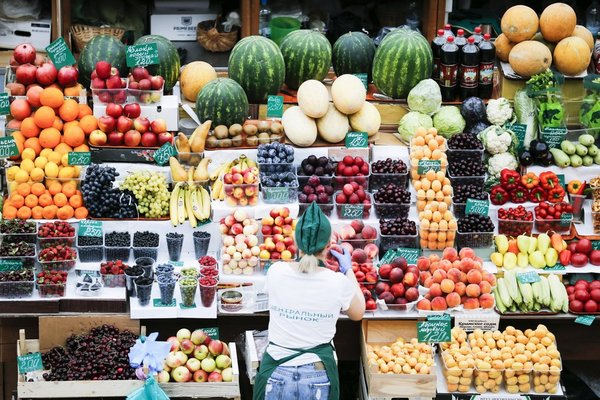 Read this article in French
Read this article in French- Share this article
- Subscribe to our newsletter
International Year of Fruits and Vegetables 2021
The Year 2021 is the UN’s International Year of Fruits and Vegetables (IYFV). It is dedicated to raising awareness about the important role of fruits and vegetables in human nutrition, food security and health.
Fruits and vegetables are good sources of dietary fibre, vitamins and minerals and beneficial phytochemicals. The Food and Agriculture Organization of the United Nations (FAO) and the World Health Organization (WHO) recommend that each adult consumes at least 400 grams of fruit and vegetables on a daily basis to prevent chronic diseases, such as cancer, diabetes, heart disease and obesity, as well as to counter micronutrient deficiencies.
With the COVID-19 pandemic the need to transform and rebalance the way our food is produced and consumed has only been further stressed.
Food loss and waste remain a problem
The FAO Director-General QU Dongyu noted that food loss and waste in the fruits and vegetables sector remain a problem with considerable consequences, and that "innovative technologies and approaches are of critical importance", as "they can help maintaining safety and quality, increasing the shelf-life of fresh produce items and preserving their high nutritional value".
Food loss and waste reduction improves food security and nutrition, reduces greenhouse gas emissions, lowers pressure on water and land resources and can increase productivity and economic growth.
Up to 50 per cent of fruits and vegetables produced in developing countries are lost in the supply chain between harvest and consumption.
Strengthening the role of smallholder farmers
Advocacy for fresh produce is consistent with the aim of strengthening the role of smallholder and family farmers, and fosters broader market options for millions of rural families. Gender equity opportunities are also noteworthy, as women often play leading roles for their households in both the production and consumption of fruits and vegetables.
The International Year of Fruits and Vegetables 2021 falls within the UN Decade of Action on Nutrition (2016-2025) and the UN Decade of Family Farming (UNDFF 2019-2028). These observances reinforce each other while providing greater visibility to small-scale producers and raise awareness on food security and nutrition.
(FAO/ile)
Read more at FAO website
Visit the website of the International Year of Fruits and Vegetables 2021
Rural 21 Issue 3/2020: Changing times, changing diets





Add a comment
Comments :